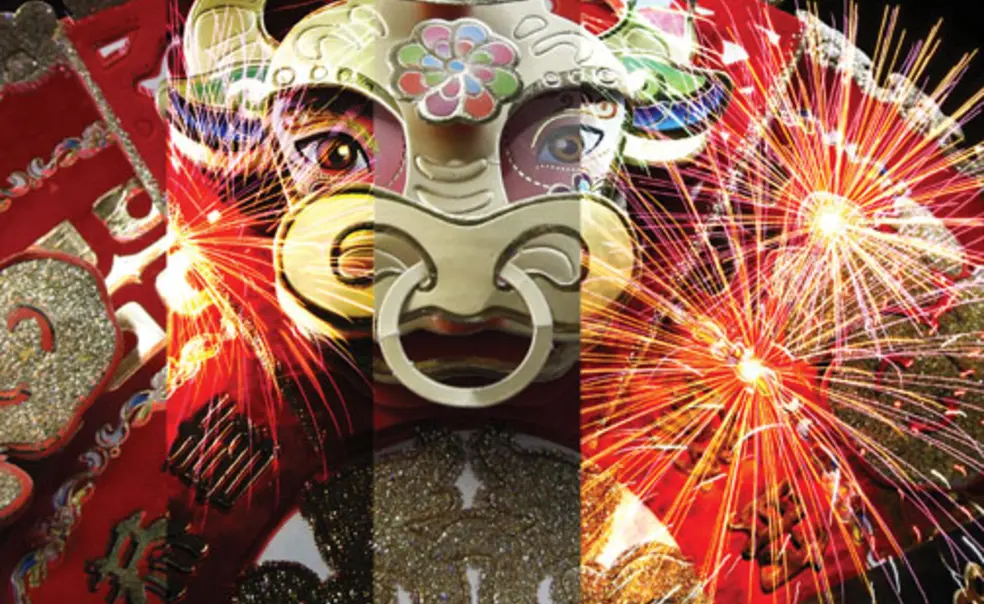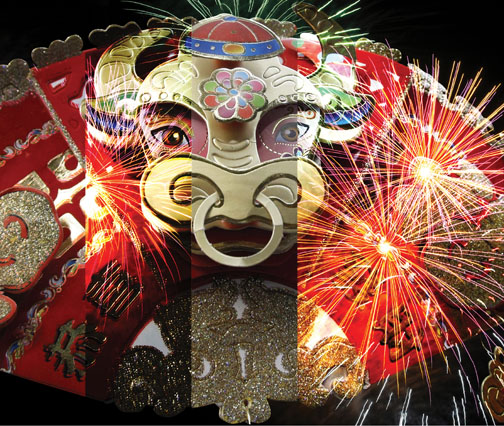One of the first pieces of wisdom that seasoned expats impart to newbies in Hanoi is to get out of town when Tet rolls around. In fact, they’ll suggest you get out of Vietnam entirely, since the whole population of 86 million will be too busy celebrating the Lunar New Year to make a foreigner a bowl of pho noodles or give her a motorbike taxi ride.
During the first year I lived in Hanoi, in February 2007, I took this advice and headed to Laos during Vietnam’s most important holiday. When I opted to stay a second year, I decided it was time to learn what Tet was all about. So I asked Hoa, my friend and co-worker at Viet Nam News, if I could join her family’s Tet festivities. “I guess that means I have to go to my grandparents’ house this year. I told my parents I was staying in Hanoi,” she replied.
Tet was optional? That didn’t jibe with the expats’ warnings. I had learned from my tutor, Hanh, that Tet was a time of bounty and celebration that two decades ago had stood in stark contrast to the rest of the year. People would make do without luxuries and wait in line for rice rations all year, but Tet had meant haircuts, new clothing, and feasting. Even as prosperity increased, Tet still reunited families and presented a chance to start fresh, cleansed of bad luck or guilt from the year before. So why didn’t Hoa want to participate?
I recalled comments other co-workers had made the year before when I had asked if Tet had been fun. Thuy Ha, known in the office for her short skirts and hip-swinging strut, rolled her eyes and said she had wanted to take a trip to Cambodia with friends, but her parents had made her feel guilty enough to stick around for the family gatherings. Next year, she vowed, she was taking a real vacation with her days off. Looking weary, Hien, another colleague, told me the holiday had been hard. “So much cooking and cleaning to do,” she sighed. “And nothing I do is ever good enough for my father-in-law.”
It was my first clue that young Vietnamese women ushered in the new year confronting questions about how to reconcile respect for tradition with yearning for change.
At 8 a.m. on the last day of the Year of the Pig, Hoa and I huddled together on her red Honda Wave, struggling to hold a conversation over the roaring engines on the road. Hoa was about to transfer to our newspaper’s Ho Chi Minh City office, and she was bubbling with anticipation to leave her parents’ home and explore a new part of the country. “Vietnamese people are so afraid of change,” she asserted. “The paper was looking for four volunteers to work at the branch in Saigon, and I was the only one who wanted to go. The conditions for working there are better in every way, but people here are so afraid of something new.”
Three hours later, we were greeted by an army of family members. In addition to the wrinkled matriarch and patriarch of the clan, there were Hoa’s cousin, who had just been accepted to Harvard Law School; her aunt, who immediately began pestering Hoa about whether she had a boyfriend yet; and her uncle, a hotshot in the Communist Party’s publishing world.
As we sat down to lunch on bamboo mats, Hoa motioned toward the circle of men sitting on a platform. “That’s where the powerful ones sit, above the rest of us,” she whispered, rolling her eyes. As the women sat together silently picking at dishes like banh chung, a holiday specialty made of sticky rice, green-bean paste, and pork, the men toasted each other over and over, lifting shotglass-sized cups of rice wine high in the air before downing them.
After lunch, Hoa and I returned to the courtyard for tea with the jovial, flushed male relatives, exempted from cleanup duty with Hoa’s mother and aunts. Hoa posed for a silly photo with her young cousins, pretending to be their mother, and an older cousin reminded her that she had better find a man soon, or else she would be “e” — unwanted. I cringed, but Hoa brushed off the dig, cheerfully replying that it was too late. She was already 26.
Once we had said our goodbyes and returned to the highway, I asked Hoa if her parents minded that she did not yet have plans for marriage. They worried, she replied, but they supported her goal to study abroad, even though she might return too old and highly educated to marry a Vietnamese man. “Some people, when they get to be my age, they just want to get married as soon as possible so they don’t end up old maids,” Hoa mused. “I’m beginning to think that I don’t have to get married. I’m happy with my life now and my friends. I would like to have a man to share it with, but if that’s not possible, it’s OK.”
Though proud of Hoa for refusing to follow the path of least resistance, I wondered what future Tet holidays would be like if she stayed in Vietnam, as she intended, and never married. I found myself envisioning other paths her life could follow: Perhaps she would meet someone in graduate school and move with him to a place where she could be her loud-mouthed, ambitious, independent self without being labeled unladylike and unmarriageable. But Hoa knew far more than I did about the constraints her country placed on her life choices.
That night, Hoa sent me a text message asking if I wanted to go see the fireworks over Hoan Kiem Lake, where Hanoi’s youth would be celebrating.
“Em met qua!” (I’m too tired!) I typed in response. I felt drained from the effort of making small talk in Vietnamese, trying not to commit any faux pas, and feeling like I was under the microscope as the lone foreigner. More than that, I was trying to process the side of Hoa’s life I had glimpsed that day, the pressures and frustrations I previously had not understood.
My phone beeped with her reply: “Chi cung met.” I’m tired too.













No responses yet